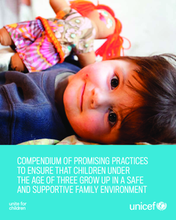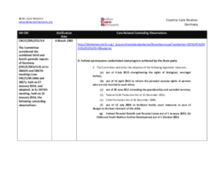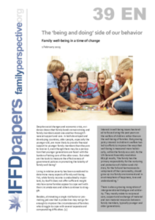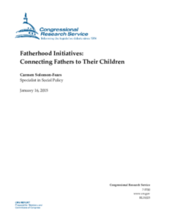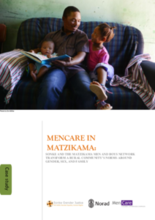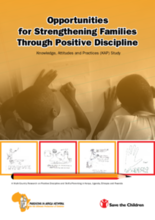Displaying 531 - 540 of 909
This Compendium is a compilation of the most encouraging initiatives in the area of prevention of child abandonment and relinquishment that have been implemented and tested in the CEE/CIS region.
This protocol describes an ambitious experimental evaluation of a universal group based parenting support program, the Family Startup Program (FSP), currently implemented large scale in Denmark; an evaluation that has not yet been made either in Denmark or internationally.
This country care review includes the care related Concluding Observations adopted by the Committee on the Rights of the Child and the Committee on the Rights of Persons with Disabilities.
This video examines Standard 13, “Unaccompanied and Separated Children,” of the Minimum Standards for Child Protection in Humanitarian Action, developed by the Global Child Protection Working Group and collaborators.
This qualitative study sought to understand the experiences of parents in England who are separated from their children due to their placement in a secure psychiatric center. The study included participants whose children had been placed into foster or kinship care or family adoption.
The present study employed Interpretative Phenomenological Analysis (IPA) to explore the experiences and meaning of motherhood among teen mothers in foster care in the United States.
This paper provides a brief overview of basic family structures in EU countries and a description of family breakdown and its impact on children’s wellbeing.
This paper from the US Congressional Research Service provides an overview of fatherhood initiatives in the United States and includes brief evaluations of five of these initiatives.
This case study documents how the Matzikama Men and Boys Network, in conjunction with MenCare’s co-coordinator Sonke Gender Justice, have transformed gender and family norms in a rural municipality in South Africa.
This study intended to develop data regarding how families parent and nurture good behaviour in their children; whether they know what would constitute nonviolent (positive) discipline; and if they actually utilized the positive aspects of disciplining. The study was conducted in specific areas (study clusters) in Kenya, Uganda, Ethiopia and Rwanda.

